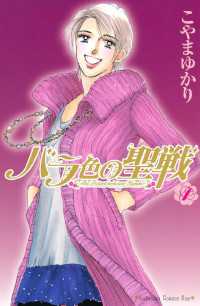- ホーム
- > 洋書
- > 英文書
- > Literary Criticism
Full Description
This book shows that many characters in the Sanskrit epics - men and women of all varnas and mixed-varna - discuss and criticize discrimination based on gender, varna, poverty, age, and disability. On the basis of philosophy, logic and devotion, these characters argue that such categories are ever-changing, mixed and ultimately unreal therefore humans should be judged on the basis of their actions, not birth. The book explores the dharmas of singleness, friendship, marriage, parenting, and ruling. Bhakta poets such as Kabir, Tulsidas, Rahim and Raidas drew on ideas and characters from the epics to present a vision of oneness. Justice is indivisible, all bodies are made of the same matter, all beings suffer, and all consciousnesses are akin. This book makes the radical argument that in the epics, kindness to animals, the dharma available to all, is inseparable from all other forms of dharma.
Contents
Ruth Vanita: Acknowledgments
1: Introduction
2: Arjuna and Krishna: Friends Discuss the Family
3: Varna: Defined by Birth or by Action?
4: Gender and the Dharma of Singleness, Marriage, and Desire
5: What is Gender?
6: Female-Male Non-Sexual Union
7: Revenge, Forgiveness, and Gender-Crossing
8: Rebirth, Gender, and Rage
9: Gender and the Dharma of Parenting
10: Citizens, Rulers, and Non-Violence
11: Kindness to Animals: the Dharma Most Available to All
12: Animals and the Joys of Intellect: Tulsidas's Crow Narrator and the Hanuman Chalisa
-

- 洋書電子書籍
-
奢侈の持続可能な管理
Susta…
-

- 電子書籍
- バラ色の聖戦 The Future i…






